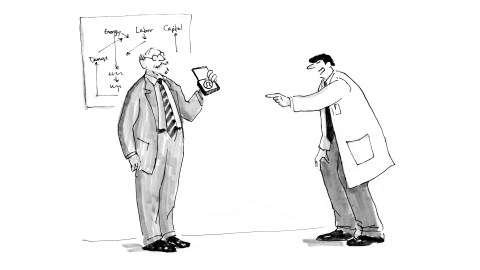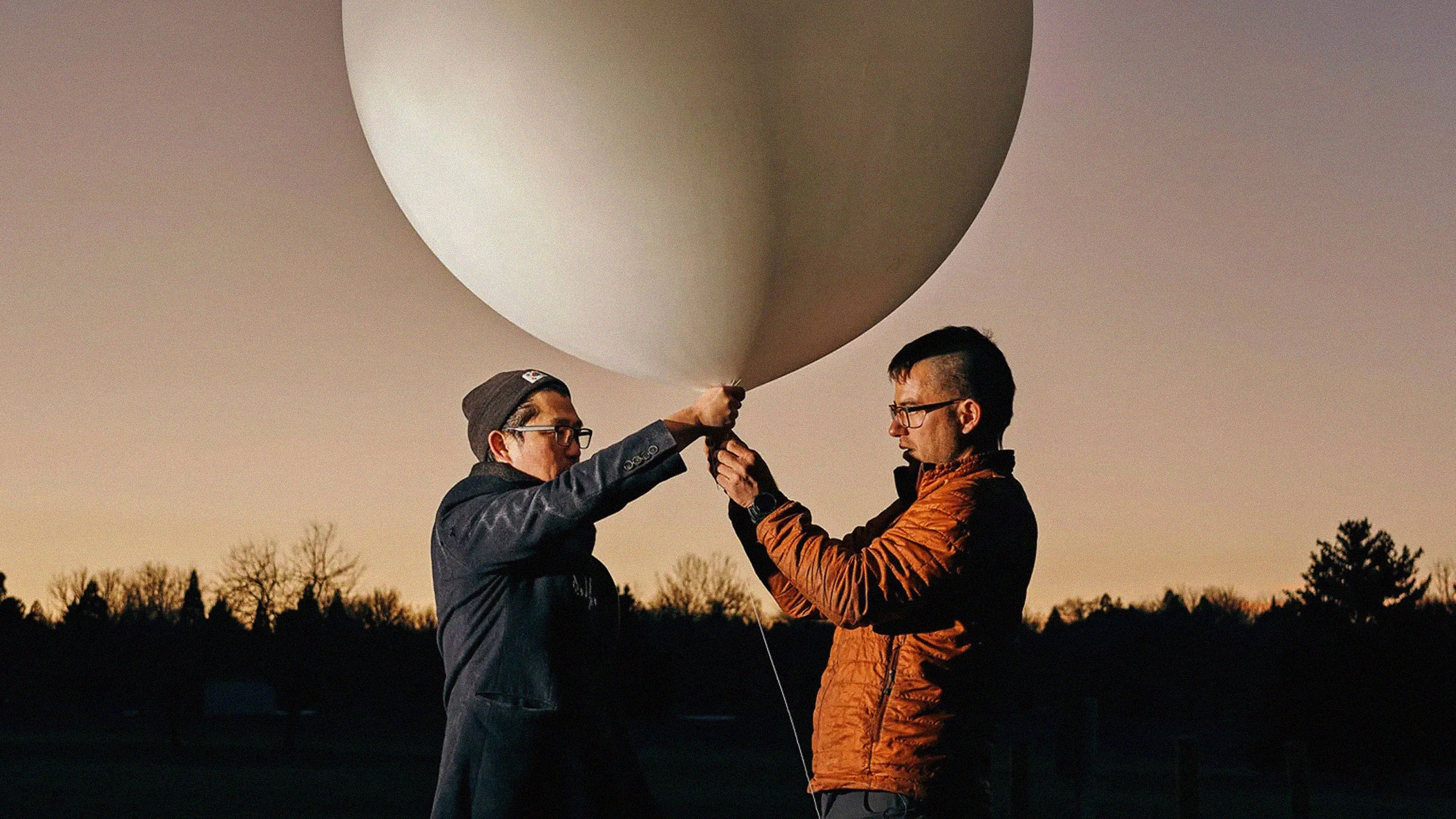This nerd fight could wreck or cure our way of life

Illustration by Julia Suits, author of The Extraordinary Catalog of Peculiar Inventions, and The New Yorker cartoonist.
- What climate scientists have called a Hothouse Earth emergency, has been called “optimal” by a leading economist.
- That optimal scenario is based on “the most unrealistic and dangerous assumption in the history of economics.”
- Leading scientists warn strongly against the methods that economists use. “No amount of economic cost–benefit analysis is going to help us. We need to change our approach.”
A little-known nerd fight might soon seal our fate. It pits prominent scientists who warn we’re already in a “climate emergency” against economists who project only limited harms to human welfare. The disagreement is so severe now that many climate scientists “don’t trust… the economists.” That’s how Professor Steve Keen, himself an economist, puts it.
The position of the relevant economists is well summarized in the following two quotes. “The impact of climate change on the economy and human welfare is likely to be limited… in the twenty-first century,” said R. Tol in a 2018 survey of integrated climate and economic modeling literature. And in his 2018 Economics Nobel Prize acceptance speech William Nordhaus described a 4 degree C temperature rise as “optimal,” leading to a minor 3.6% cut in global economic output — his prize was explicitly for “integrating climate change” into economic models.
Compare that to climate-science models that show a 4 C degree rise risks a catastrophic “Hothouse Earth” scenario (W. Steffen 2018), with large uninhabitable zones, irreversible tipping points, a 10+ meter sea-level rise, and an estimated carrying capacity of ~80% fewer humans (~1 billion people). That hardly seems compatible with maintaining 96.4% of global economic output. Never mind the moral meaning of 6 billion less people alive.
Stopping climate change will pump trillions into the economy
The climate scientists who “don’t trust the economists” include W. Steffen a contributor to the Intergovernmental Panel on Climate Change reports. He alongside 15 other scientists advises that “theories, tools, and beliefs… [that] focus on economy efficiency, will likely not be adequate.” That’s an overly diplomatic way of putting Keen’s statement more clearly — these scientists warn “strongly against the methods that economists use.” Or as another leading climate scientist, Tim Lenton writes, “No amount of economic cost–benefit analysis is going to help us. We need to change our approach.”
That focus on economic efficiency is the kind of sophisticated abstraction that sometimes hides bad logic and bad morals (under attractively antiseptic algebra). For example, here the bad logic presumes that how economic output varies by location and temperature today can be used to estimate model coefficients to project into the future. But Hothouse Earth conditions will be radically different from today’s (that’s like using current Evian sales trends to model the water market in a Mad Max Fury Road world). Keen calls this “the most unrealistic and dangerous assumption in the history of economics,” (Averting Systemic Collapse OECD Sept 2019, slide 23) and says the “lack of realism is just breathtaking.” The slick surface of economic models can hide mathematized madness and logic that few scientists would find credible.
To see the moral missteps, it usually helps to recast the abstractions in concrete human terms. What economic climate-impact models call “costs” are in reality actual people suffering, i.e., your kids, and billions of other humans having worse and shorter lives. Lurking in “cost benefit” analyses are deeply indecent proposals. Deals with the devil that mask this moral structure: What gain can I offer you to let me worsen your kids’ lives? Shouldn’t moral “costs” (like shortening your kids’ lives) be non-compensable and non-negotiable?
Keen believes that economists like Nordhaus and Tol have contributed to keeping us “paralysed for almost 50 years.” Too many political leaders have put too much stock in these climate-trivializing economic models. Perhaps we should join Keen in calling for the removal of mainstream economists (or at least their “laughable” methods) from the IPCC.





